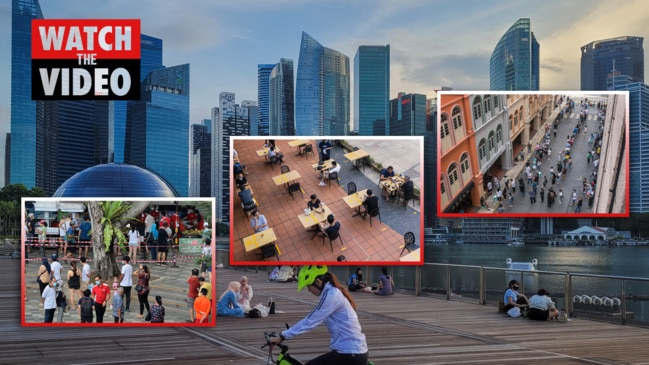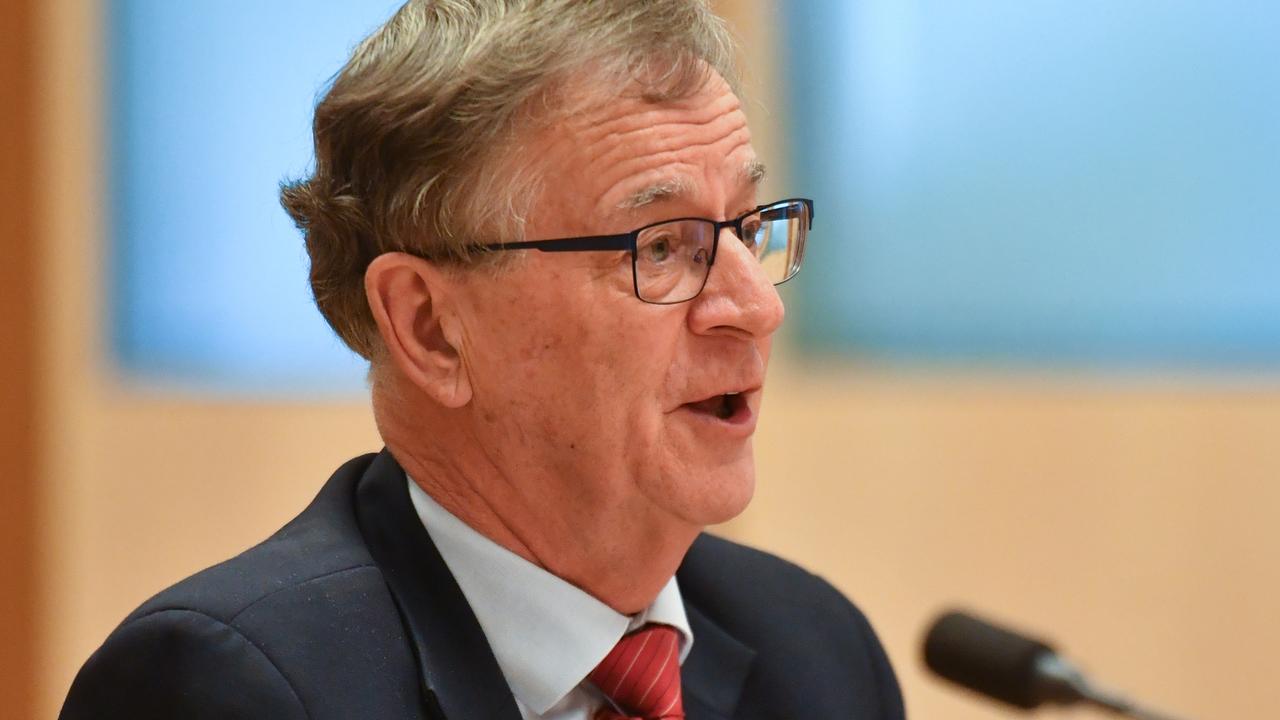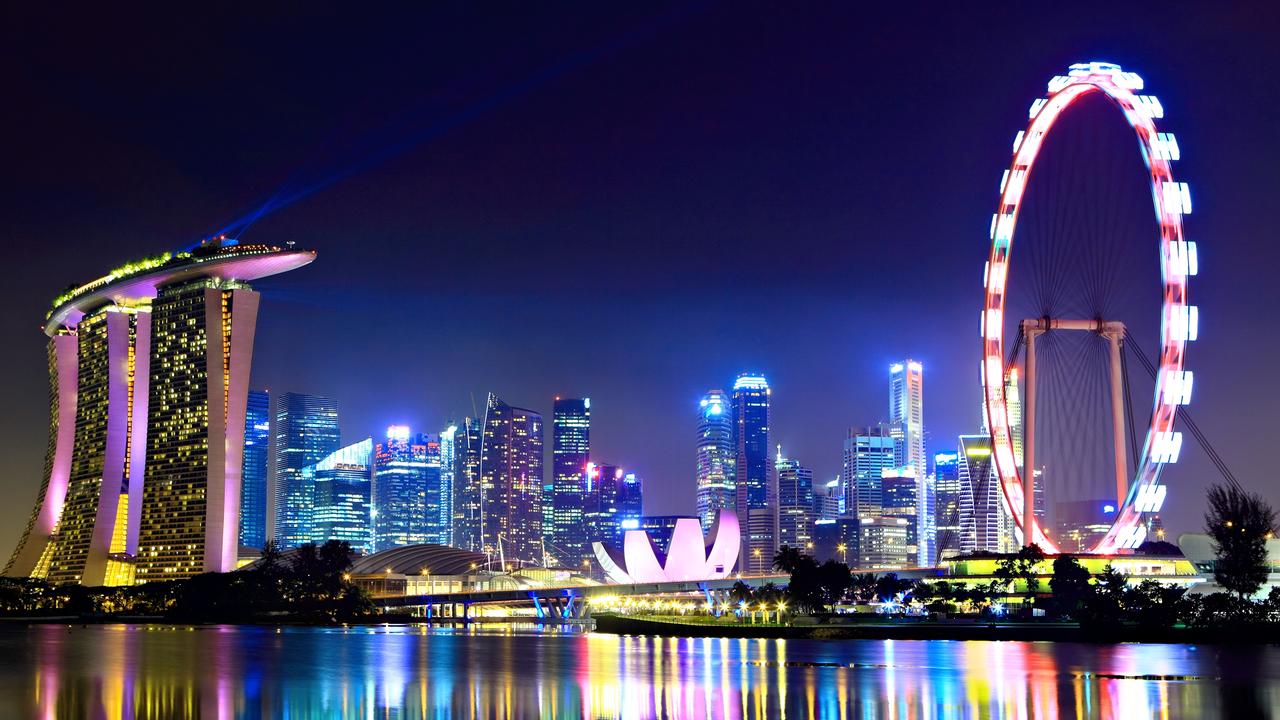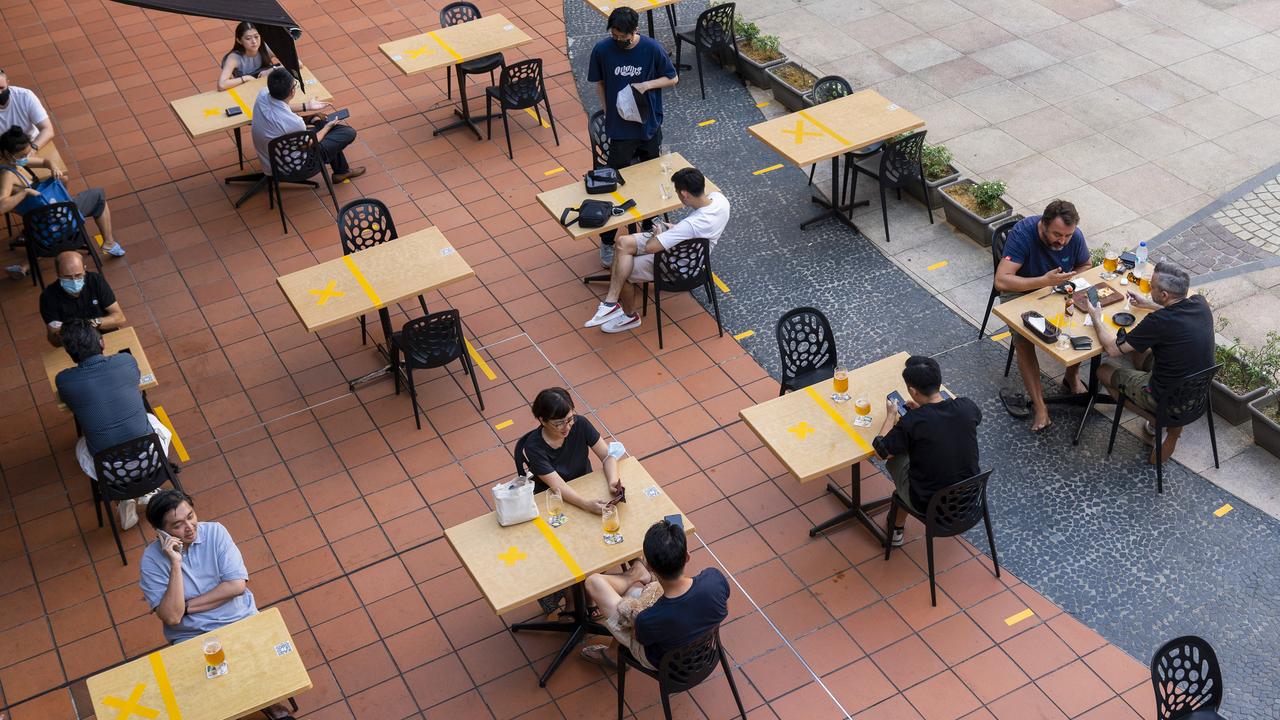How Singapore’s radical plan to live with Covid would work in Australia
Singapore’s plan to cease daily case numbers and end quarantine could work in Australia an expert has said – but there’s a catch.

Singapore’s road map to “live with Covid-19,” which includes no longer releasing daily case numbers, is a “sensible approach” for Australia, a leading epidemiologist has said.
But not yet.
Last week, a bevy of senior ministers from the city-state announced that in the future Covid would be treated like other endemic diseases such as flu.
Goals of zero transmissions, quarantine for travellers and isolation of close contacts would be out, replaced by breathalyser tests done before going to work or the shops.
Vaccinations would prevent most people with Covid becoming ill and they would be able to recuperate at home.
“The bad news is that Covid-19 may never go away. The good news is that it is possible to live normally with it in our midst,” wrote Singapore’s trade Minister Gan Kim Yong, finance Minister Lawrence Wong and health Minister Ong Ye Kung said in an editorial in the Straits Times last week.
“Every year, many people catch the flu. The overwhelming majority recover without needing to be hospitalised, and with little or no medication. But a minority, especially the elderly and those with comorbidities, can get very ill, and some succumb.
“We can’t eradicate it, but we can turn the pandemic into something much less threatening, like influenza or chickenpox, and get on with our lives,” the trio said.
Singapore’s new road map won’t kick in straight away but when the country of 5.7 million people reached a high vaccination rate.
Currently 36 per cent of Singaporeans are fully vaccinated. In Australia, 4.7 per cent of people have had both jabs.
RELATED: Singapore planned for next travel bubble

Singapore plan a “sensible approach”
Peter Collignon, an infectious diseases professor at the Australian National University, told news.com.au Singapore’s was a “sensible approach”.
But the time for Australia to follow their lead was not yet and might not be for many months.
“Once we get to between 20 – 35 million doses then we can have a look at a different approach,” he said.
He said an aim should be to fully vaccinate around 70 – 80 per cent of the population including 90 per cent of those over 70 years of age.
With a million doses of Astra Zeneca coming out of Melbourne every week and Pfizer also in circulation, Prof Collignon said two million injections a week was achievable in the coming months.
Nonetheless, reaching a high level of protection could still be many months away and more likely towards the end of 2021.
“Once a large proportion of the population is vaccinated our approach should be about home hospitalisations and how many deaths (rather than case numbers).”
“At some stage the consequences of this disease are going to be markedly decreased.”
Prof Collignon pointed out that in 2017 influenza claimed 1400 Australians. It was a bad year for the flu but general everyday life was not disrupted.
RELATED: Singapore’s surprising new plan to ‘live with Covid’ revealed


Singapore had an initial peak of cases last year, topping out at 600 a day in mid-April. Following a smaller wave in August, Covid-19 hasn’t flared up since.
However there has been a steady undercurrent of around 20-30 cases every day. The nation has recorded 35 deaths in total.
The trio of Singaporean ministers said the reporting of daily case numbers should be ended at some point.
“Instead of monitoring Covid-19 infection numbers every day, we will focus on the outcomes: how many fall very sick, how many in the intensive care unit, how many need to be intubated for oxygen, and so on,” the three ministers said.
“This is like how we now monitor influenza.”
Ministers Kung, Yong and Wong said Covid could be “tamed” if not vanquished through widespread vaccination.
They called the road map “a new normal”.
“In time, the airport, seaport, office buildings, malls, hospitals and educational institutions can use these kits to screen staff and visitors.”
People with Covid would recover at home because symptoms would mostly be mild and close contacts would be vaccinated.
As most cases will be less of an issue, the need for contact tracing and quarantining will be low.
“History has shown that every pandemic will run its course,” the three concluded.
Prime Minister Scott Morrison has warned that high vaccination rates may not be enough to open international borders.




